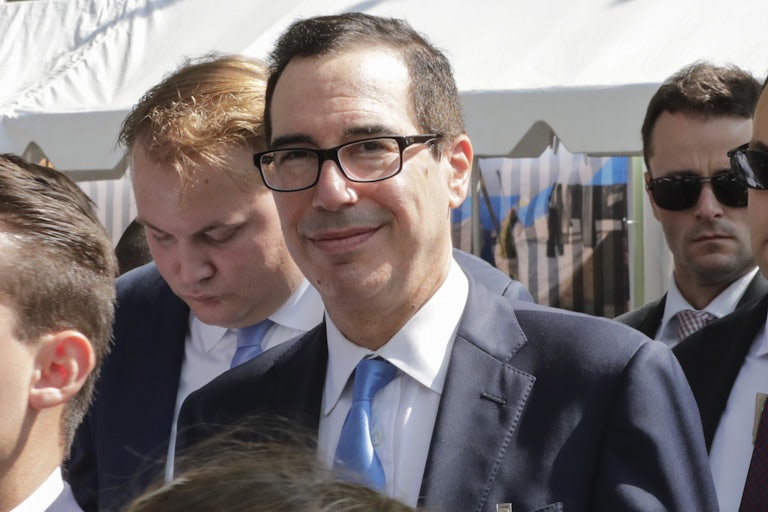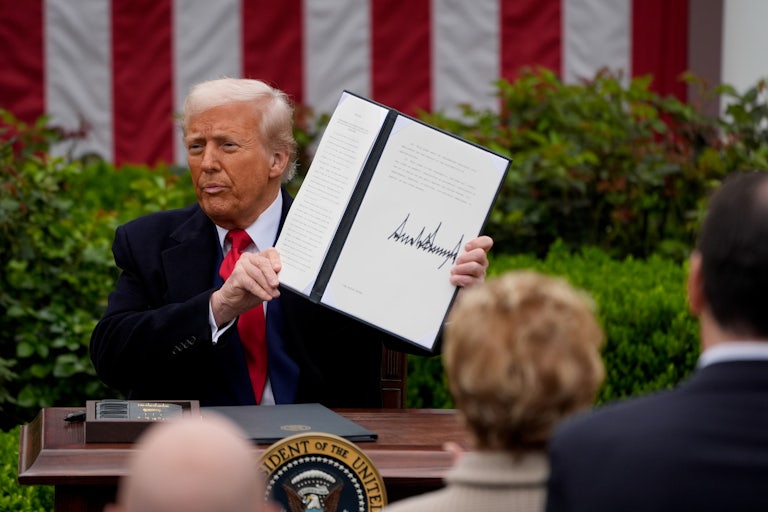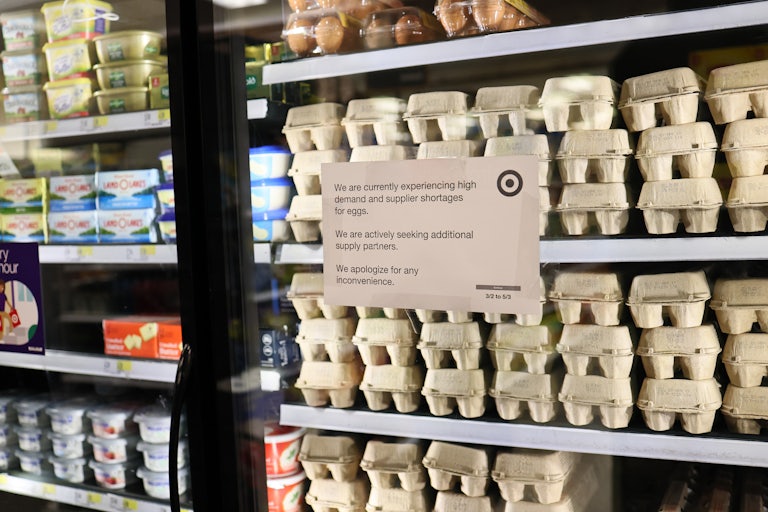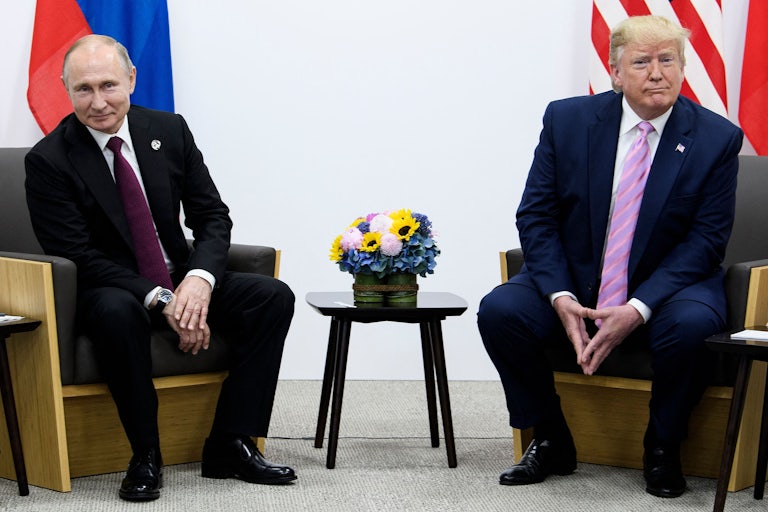Trump’s Extreme Tariffs Have Already Hit the Auto Industry
Donald Trump’s commerce secretary, meanwhile, promised that employment would go up as a result of the tariffs.

American companies are not “leaping” to hire new employees, as the White House promised. Instead, they’re rapidly letting them go.
Stellantis—one of the Big Three automakers in the U.S.—announced Thursday that it would be laying off hundreds of U.S. workers in the wake of Donald Trump’s sweeping tariffs. The company is also planning to temporarily pause production at two foreign assembly plants in Canada and Mexico.
“We are continuing to assess the medium- and long-term effects of these tariffs on our operations, but also have decided to take some immediate actions, including temporarily pausing production at some of our Canadian and Mexican assembly plants,” Chief Operating Officer Antonio Filosa told employees in an email on Thursday.
Some 900 U.S.-based employees are expected to be laid off at Stellantis’s Warren Stamping and Sterling Stamping plants in Michigan, as well as three of its transmission and casting plants in Indiana.
Speaking with CBS earlier Thursday, Commerce Secretary Howard Lutnick had claimed that “people are going to start building factories right now” and that companies will “employ Americans today.”
“Factories rebuilding, all the ships are going to be running hot across America now; you’re going to see employment leaping starting today,” Lutnick said.
But Lutnick’s insistence on following Trump’s tariff plan has veered totally into the delusional. In an interview with CNN the same day, Lutnick implored voters and investors to “let Donald Trump run the global economy,” promising that Trump would cut deals “if and only if these countries can change everything about themselves.”
Wall Street analysts have predicted bad news for automakers and their investors as they attempt to navigate Trump’s 25 percent tariff on imported vehicles and auto parts, which took effect Thursday. In the near term, that will look like increased market volatility and shaken supply chains.
While there are vehicles that are assembled in America, there are no vehicles in the U.S. that are made entirely with domestic products and labor. Instead, producing a car or a truck requires thousands of parts that are sourced from the global supply chain—an international relationship that Trump’s tariffs will undoubtedly hurt.
“We stress that the concept of a U.S. car maker with parts all from the U.S. is a fictional tale that does not exist and would take years to make this concept a reality,” Wedbush analyst Dan Ives wrote in an investor note Wednesday obtained by CNBC.








